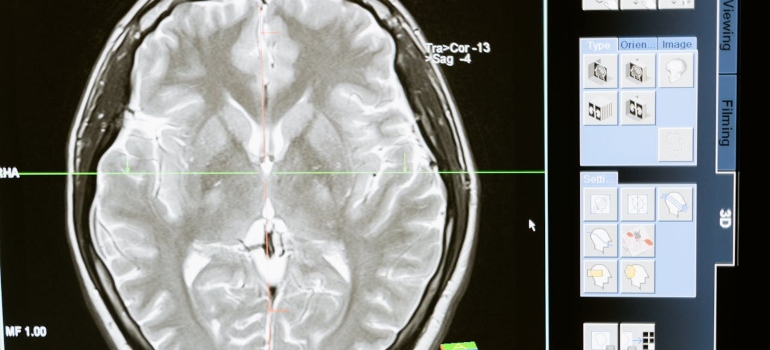Are Some People Predisposed to Addiction- Genetic Factors
Genetics plays a crucial role in predisposing people to addiction. Research shows that certain genetic variations can greatly influence one’s susceptibility to substance abuse. This concept is especially important in the context of addiction. That is because specific genes can affect how individuals respond to drugs or alcohol. For example, studies have identified variations in the DRD2 gene, which is involved in the brain’s dopamine system, as being related to a higher risk of developing addiction. This vulnerability can manifest in various ways. For example, we have increased sensitivity to the rewarding effects of drugs. In addition, we also have a decreased ability to experience pleasure from natural rewards. Understanding these genetic influences is vital. Especially when considering specialized treatment options like rehab for seniors, who may have distinct needs and genetic factors affecting their addiction and recovery processes.

Neurobiological Factors
The neurobiological mechanisms underlying addiction give us insight into how substances affect the brain’s reward system. Substances such as drugs and alcohol hijack the brain’s reward circuitry, primarily including the neurotransmitter dopamine. When a person uses a substance, it triggers a surge of dopamine. Thus, that leads to creating feelings of pleasure and reinforcing the behavior. Over time, repeated substance use leads to changes in brain structure, which results in tolerance (needing more of the substance to achieve the same effect). These neurobiological changes make it difficult for individuals to quit using substances. For those coping with addiction, seeking help from specialized facilities such as inpatient drug rehab centers in West Virginia can provide the necessary support and resources. These centers offer comprehensive treatment programs designed to address the complex neurobiological aspects of addiction.
Neurobiological Differences and Addiction Vulnerability
Differences in brain structure and function can also cause some people to addictive behaviors. This deficiency can drive individuals to seek out substances that provide a bigger dopamine boost. Also, abnormalities in the prefrontal cortex, which is involved in decision-making and impulse control, can damage an individual’s ability to resist temptations and make healthy choices. Programs like the partial hospitalization program West Virginia offer specialized care that tackles these unique brain-based vulnerabilities. These programs give intensive therapy and support. However, they are also allowing individuals to maintain some aspects of their daily routines. Once we focus on both the neurobiological and behavioral aspects of addiction, partial hospitalization programs can help people develop healthier coping mechanisms.

Psychological Traits and Addiction Risk
There are certain personality traits and psychological factors that can increase susceptibility to addiction. In addition, impulsivity, sensation-seeking behavior, and challenges in regulating emotions are commonly associated with a higher risk of substance use disorders. Impulsive people often act without considering the consequences. Furthermore, that fact is making them more likely to experiment with drugs or alcohol. Sensation seekers are drawn to new and intense experiences, which often leads to substance use. Emotional dysregulation, or the inability to navigate emotions effectively, is another significant risk factor. People who struggle to cope with anxiety, stress, or depression may turn to substances as a way to self-medicate.
Are Some People Predisposed to Addiction and Develop Personality Disorders and Addiction?
Research has identified a link between addiction and certain personality disorders, such as antisocial personality disorder (ASPD) and borderline personality disorder (BPD). People with BPD often experience intense emotions and have unstable relationships. In return, that can lead to substance use as a form of escapism. Those with ASPD may take part in risky behaviors, including substance abuse, due to a lack of regard for societal norms and the consequences of their actions. Moreover, co-occurring mental health disorders, such as anxiety, depression, or bipolar disorder, often collide with addiction vulnerability. These conditions can create a vicious cycle where substance use causes mental health symptoms and vice versa. Tackling these intertwined issues through dual diagnosis treatment is crucial for effective recovery. Dual diagnosis programs treat both addiction and underlying mental health disorders at the same time.

Developmental Influences
Stages of development and life transitions have a great impact on susceptibility to addiction. Especially adolescence is a critical period for brain development. The adolescent brain is still maturing, particularly the prefrontal cortex, which is responsible for impulse control. This developmental stage makes teenagers more prone to substance use. Major life stressors, such as job loss, the loss of a loved one, or divorce, can also increase the risk of addiction. These events can create emotional troubles, leading people to seek comfort in substances. Moreover, periods of transition, such as starting college, moving to a new city, or transitioning to a new job, can be stressful and destabilizing. Therefore, it is not surprising that veterans are facing these challenges, too. That is where specialized rehab for veterans offers customized support and understanding of their unique experiences. These programs provide comprehensive treatment that deals with the specific needs of veterans.
Social and Cultural Factors
Peer pressure, social influences, and cultural norms play an important role in shaping attitudes toward substance use and addiction. For example, peer pressure can strongly influence individuals within their social circles. Friends who participate in substance use normalize this behavior. Cultural norms are also a great influence when we discuss substance use behaviors. In some cultures, alcohol consumption is deeply instilled in social and religious practices. When we have that type of society, that means that they are cultivating acceptance and normalization of drug and alcohol use. On the other hand, other cultures may strictly prohibit substance use. Moreover, socioeconomic factor affects addiction vulnerability. People from lower socioeconomic backgrounds may face heightened stress levels. Addressing these influences through individual therapy for addiction is crucial. This therapeutic approach focuses on exploring and addressing social pressures, personal beliefs, and cultural influences that contribute to substance use.

Community Factors and Addiction Risk
We have community factors, such as the availability of drugs or alcohol, playing a crucial role in addiction risk. With the presence of supportive social networks and access to recreational activities, there is a widespread availability of substances. However, availability usually includes limited resources for prevention and treatment. This type of environment can normalize substance use and make it easier for people to access drugs or alcohol, increasing the probability of addiction. On the contrary, some communities prioritize healthy behaviors, provide strong support services, and offer recreational alternatives that can mitigate addiction risk. Supportive social networks and community-based interventions play a crucial role in promoting substance-free lifestyles. Also, they are offering individuals positive alternatives to substance use. By enhancing community resources and nurturing environments that discourage substance use, communities can effectively reduce addiction rates.
Are Some People Predisposed to Addiction or Prevention and Early Intervention Can Stop it?
Early intervention and prevention strategies are vital in decreasing addiction risk factors. In addition, education plays an essential role in raising awareness about the dangers of substance use. Schools, community organizations, and healthcare providers can give information about the risks of addiction and the importance of making healthy choices. Parents who actively participate in their children’s lives, set clear expectations, and model healthy behaviors can reduce the probability of mental health issues and substance use. Also, direct communication and the establishment of a supportive home environment can help children make smart choices and resist peer pressure. Furthermore, we have community support programs, such as youth centers, after-school activities, and mentorship programs, that provide positive alternatives to substance use. Building resilience through skills such as stress management, emotional regulation, and problem solving can help people cope with life’s difficulties in healthier ways.

Are Some People Predisposed to Addiction or Treatment and Recovery Can Help?
Understanding the multiple factors that contribute to addiction has important implications for treatment approaches. Personalized care plans that tackle individual risk factors and strengths are crucial in promoting recovery. There are all-encompassing treatment programs that integrate medical, behavioral, and social support services. Medical treatment can include medications to manage withdrawal symptoms, reduce cravings, or treat co-occurring mental health disorders. Behavioral therapies, such as cognitive-behavioral therapy (CBT), motivational interviewing, and contingency management, help people change their behaviors and develop healthier coping strategies. Social support services, family therapy, and vocational training provide the needed resources and support for sustained recovery. Recovery is a lifelong process that involves continuing support. Relapse prevention strategies, such as understanding triggers, developing coping skills, and creating a strong support network, are vital in maintaining sobriety. Comprehensive treatment programs that tackle the whole person—mind, body, and spirit—are most efficient in promoting lasting recovery.
Future Directions in Research
Emerging research and progress in addiction science are promising when we discuss improving prevention, treatment, and public health strategies. Genetic studies continue to uncover the complex interplay between genes and environmental factors. Neuroscience research is providing a deeper understanding of the brain mechanisms that are part of addiction. Advances in brain mapping techniques are discovering the structural and functional changes associated with substance use disorders. Customized medicine approaches that include an individual’s genetic, neurobiological, and psychological profile hold promise for better outcomes. Public health strategies are also evolving to address the complex nature of addiction. Comprehensive approaches that integrate prevention, early intervention, treatment, and recovery support are crucial in managing the multifaceted aspects of addiction. Community-based initiatives, policy changes, and increased access to resources are key components of a comprehensive public health strategy to fight addiction.

So, Are Some People Predisposed to Addiction for Real?
To sum up, understanding the multiple factors that add to addiction is critical in developing effective prevention, treatment, and recovery strategies. Genetic predisposition, family history, neurobiological mechanisms, psychological traits, developmental influences, and social and cultural factors all play a significant role in shaping people’s risk of addiction. Emerging research and technological advancements in addiction science hold promise for further improving our understanding of the complex addiction issue. Moreover, treatment of this complex condition paves the way for more effective and personalized approaches to addiction prevention and recovery.



